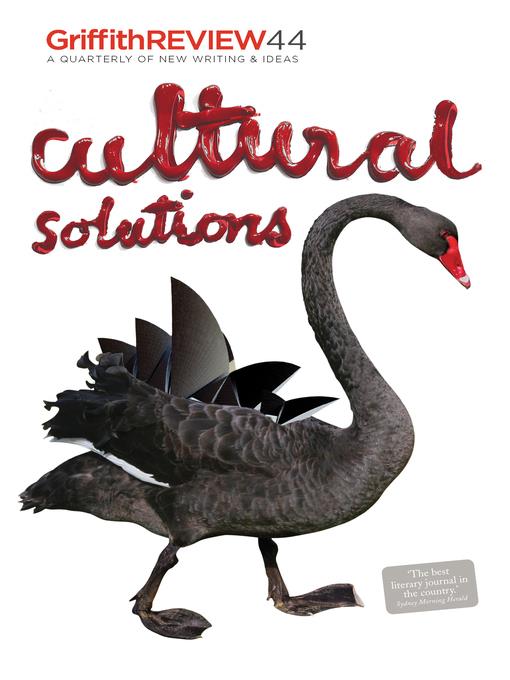Homelessness, family violence, drug abuse, and alienation: have our leaders and policy makers been going about it all wrong? What if karaoke could create cultural cohesion in fractured communities; or if hospitality helped house people; or if troubled kids could turn their lives around by telling stories?
At a time when austerity informs economic policies in even the 'essential' areas of health and education, is it time to reconsider the returns from funding arts and culture? There are proven benefits of using the arts to develop and maintain social cohesion and innovation.
Griffith REVIEW: Cultural Solutions explores new ways Australians are working together and solving social problems that governments and other organisations have struggled with.
'In this edition our contributors share the cultural solutions that are transforming the lives of Australian people and communities,' Griffith REVIEW editor Julianne Schultz explains.
The cultural solutions explored across the edition vary in approach, scale and purpose. Robyn Archer suggests it might be time for Australians to rethink and revalue the importance of culture, including artists themselves, who 'are often far too easily persuaded to back off when it is obvious that money is short and we are in, or about to enter, a very tight budgetary cycle.'
Big hART's Scott Rankin discusses the great return-on-investment offered by cultural solutions and how even a modest investment can have a far-reaching impact on the seemingly intractable social problem of marginalised youth. Alice Pung explores the importance of storytelling to give marginalised children a true voice while Maria Tumarkin wonders if our growing need for communication to be packaged into attractive stories means we are missing out on more complex information that doesn't fit dramatic narrative.
Marcus Westbury and Jim Hearn recount how their personal journeys from the fringes influenced and informed their very different approaches to community development.
Published with the support of Creating Australia, Griffith REVIEW: Cultural Solutions puts flesh on the bones of the cultural richness around us and prove its success in providing new fixes for old problems.
Julianne Schultz AM FAHA is the founding editor of Griffith REVIEW, Australia's most awarded and extracted quarterly, produced by Griffith University and Text Publishing. She is a professor in the Griffith Centre for Cultural Research, a member of the boards of the ABC and the Grattan Institute, and chair of the Australian Film Television and Radio School. Julianne is an acclaimed author, and in 2009 became a Member of the Order of Australia for services to journalism and the community.
'The best literary journal in Australia.' Sydney Morning Herald
'As engaging as it is prescient.' Weekend Australian
'Fresh and intelligent.' Australian Book Review
'Griffith REVIEW is Australia's leading literary journal.' Monocle


دیدگاه کاربران